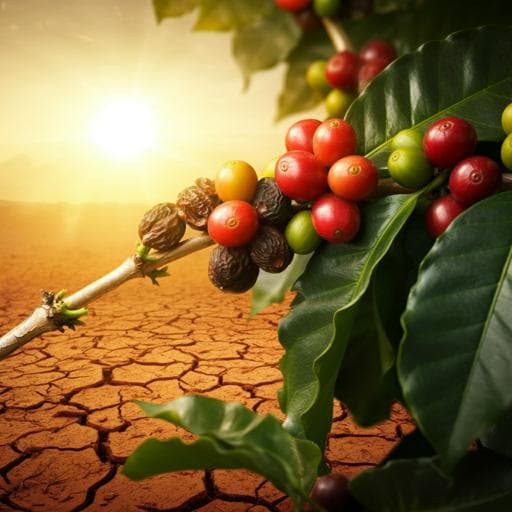
Agriculture
Impact of drought associated with high temperatures on *Coffea canephora* plantations: a case study in Espírito Santo State, Brazil
L. P. Venancio, R. Filgueiras, et al.
Explore the urgent findings of this study by Luan Peroni Venancio and colleagues, which reveals how droughts and soaring temperatures are crippling *Coffea canephora* plantations in Brazil. Discover critical vulnerabilities in crop cycles, the impact of climatic changes on production, and innovative strategies for mitigation.
~3 min • Beginner • English
Related Publications
Explore these studies to deepen your understanding of the subject.







